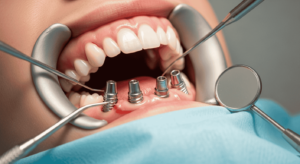Did you know that the demand for drug and alcohol rehab clinics in the United States alone generates about $5 billion every year? This industry has been growing at a rate of about 3.7% per year for the past five years. There are many signs that indicate that this market will continue to grow at least for the next several years as well.
These days, a lot of people are struggling with one or even multiple addictions. During the addiction recovery process, it is common for people to suffer from a drug relapse. The way that you handle your relapse can have a huge effect on your eventual addiction recovery success.
That is why it is so important that you know what to do following a drug relapse. The good news is that there are a lot of positive things you can do in the immediate aftermath of a relapse.
Read on to learn all about the top strategies you can use after a relapse!
1. Learn About Your Triggers After an Addiction Relapse
During the addiction recovery process, people spend a lot of time learning about their addiction triggers. Some people generate a list of dozens or even hundreds of triggers that can make it more likely that they have a relapse.
Of course, it can take a long time to build up such a long list. Some people are not aware of some of their triggers until one of them causes a drug relapse.
Although drug relapses are always unfortunate, they can also be a valuable learning opportunity. This is the perfect time for you to take stock of what happened and what triggered your relapse while your memories are still fresh.
Think back to what led to your relapse. Understand why you were not aware of this trigger before. This can help you discover any blind spots that you might have about your addiction.
While you are thinking about the specific trigger that led to your most recent relapse, it can also be helpful to think about related triggers that you might not have thought about before.
For example, if hanging out with a specific person turns out to be an addiction trigger, that can give you the insight you need to think about what other people might also act as addiction triggers in your life.
In the end, the addiction recovery process is often a long road of trial and error. Although we try to avoid errors, they are also the mechanism by which we learn how to do better in the future.
2. Get Help as Soon as Possible
Sometimes, one drug relapse has a tendency to lead to others. In other cases, a drug relapse can lead to other kinds of negative behaviors. That is why it is important to find help as soon as possible when you are in a drug relapse situation.
Getting someone on the phone or visiting with them can help ground you. It can also help you talk with someone about how you relapsed and what you can do to start improving your situation starting now.
In an addiction recovery situation, people sometimes find it difficult to exercise the discipline to make positive choices. That is another reason why it can be so valuable to involve another supportive person as soon as possible. Even if your discipline flags, once someone else knows about your situation, there is a good chance that they will help you recover your discipline again.
3. Update Your Plan for Managing Addiction Triggers
After a drug relapse, it is not enough to only learn about your addiction triggers. Instead, you also want to make a plan for how you can do better at avoiding them in the future.
Consider comparing the cause of your recent relapse to your other triggers. Think about what has been helpful for you in avoiding relapses in the past. Then, use this material as inspiration to help you come up with a powerful way to avoid succumbing to the same addiction trigger in the future.
If possible, it is best to come up with multiple layers in your plan. That way, if your first layer of defense fails, you can move on to the next and the next after that.
It is also a good idea to involve other people in your addiction trigger avoidance plan as early as possible. For example, you might let someone know that you are encountering a specific addiction trigger and that you are going to try your first plan for resisting it.
Then, even if your first plan fails, you will have someone else who can follow up with you and help you think about other ways to resist this trigger.
You might even want to speak with this person in advance about how they can help you if you end up texting or calling them. For example, you might tell them that if you only send them one message, it would be helpful for them to follow up if you don’t respond within a certain amount of time.
4. Talk About Your Experience With Someone You Trust
People can have a lot of complicated feelings after a drug relapse experience. Sometimes, these feelings can make it difficult for them to reflect clearly on what happened. That can also make it more difficult for them to understand the trigger that led to their relapse and how they can make a plan to avoid it in the future.
Before you get to those steps, it might be helpful just to spend some time talking through what happened with someone with a sympathetic ear.
At first, you don’t need to focus on finding solutions. Getting clear about the exact details of what occurred will often take something that feels enormous and help cut it down to a more manageable size.
At the same time, as you get clearer about what happened, you can ask for advice if you feel comfortable doing so. It can be helpful to tell the person you speak with that you will not be ready to hear advice until you specifically ask for it. That can help provide you with all of the space you need to reflect and think about what happened.
Sometimes, considering advice can interfere with having a clear understanding of why you had a drug relapse in the first place. Spending more time talking about what happened first will also increase the chance that the other person will have enough context to provide you with effective advice.
5. Consider Working With a Rehab Program
Many people try to overcome addictions on their own. However, after a drug relapse, it is a good time to consider if you should start participating in addiction recovery programs. For example, you can often find support groups that meet for free one or more days of the week near you.
Attending these kinds of meetings can help you realize that you are not alone in your addiction struggles. You can hear the stories of people who have gone through similar experiences and even worse ones.
However, you can also hear about how they have overcome their addictions and why it has been so valuable for them to do so. As you meet other people who have struggled with addictions, you can also make new friends that can discuss your struggles with you and provide advice based on their own experiences.
Of course, there are also many other kinds of addiction recovery resources that you can use after a drug relapse.
6. Decide if a Rehab Facility Is Right for You
In some cases, the right strategy for your addiction recovery journey might be to sign into a rehab facility. Some people hesitate to do this because they imagine that these facilities will be unpleasant to stay at. However, there is a wide range of rehab center options out there.
Some rehab facilities focus on providing a luxury experience. That way, people can enjoy themselves as much as possible while also working on overcoming their addictions. Check out Findluxuryrehabs.com to learn more about how visiting a luxury rehab center might be the right strategy for your journey.
7. Find Things to Distract You From Drug Abuse
Sometimes, people have a plan for how to manage addiction triggers, but it fails. This is more likely to happen when someone tries to use the same coping strategies over and over again. If your techniques for avoiding addiction triggers are not working as reliably as you would like, you might benefit from experimenting with new ones.
In fact, it can be helpful to create a long list of things you can do to distract yourself from a trigger or temptation. Then, when you are struggling with a trigger, you can read through your list. Even if the first 10 strategies do not feel appealing, you can keep reading through more strategies to increase the chance that one of them will provide you with the strength necessary to resist your trigger.
Resisting Triggers With Exercise
One of the most powerful ways to distract yourself from an urge to misuse a substance is to exercise. There is almost no more reliable way to cause a change to your physical state and your experience.
After all, if you still feel tempted after walking for a few minutes, you can always keep walking or break into a jog or run to help change your state even more. As long as you keep going, it is inevitable that your body will begin to experience something very different as you push your physical limits.
It is a good idea to have multiple kinds of exercise that you can use at a moment’s notice to help you handle your triggers. If you cannot always go for a run, there is a good chance that you can always do something like push-ups or jumping jacks.
Of course, this kind of strategy can distract you in the short term while also improving your health in the long run.
Using Meditation to Resist Triggers
You might also benefit from trying out a number of meditation practices. Many people assume that it is difficult to learn to meditate. However, you can try out several different meditation styles for 5 minutes each to get a feel for the effect that they have on you.
Many people find that one kind of meditation in particular has a powerful effect on them. For that reason, you should make a point of trying out several different kinds of meditation before deciding if it will be an effective strategy for helping you overcome your addiction.
For example, you can try meditating by focusing on a single word or phrase to the exclusion of all else for a few minutes. You can also try focusing on only your breath for a few minutes. Other people benefit from spending several minutes sending positive wishes to themselves and to others.
8. Be Patient With Yourself
After a drug relapse, it is vital that you exercise some patience. Just because you have had a relapse does not mean that you are going to fail. In fact, handling a relapse the right way can provide you with more strength for overcoming your addiction in the future.
Know What to Do After a Drug Relapse
After a drug relapse, it can be difficult to maintain hope that you will overcome an addiction. However, knowing what to do when you have a relapse can make things feel much more hopeful. Although it is better to avoid relapses, they can also be a good time to learn more about your struggles and achieve success in the long run.
To learn more about the latest information in addiction, business, and more, take a look at our other articles!





Be First to Comment